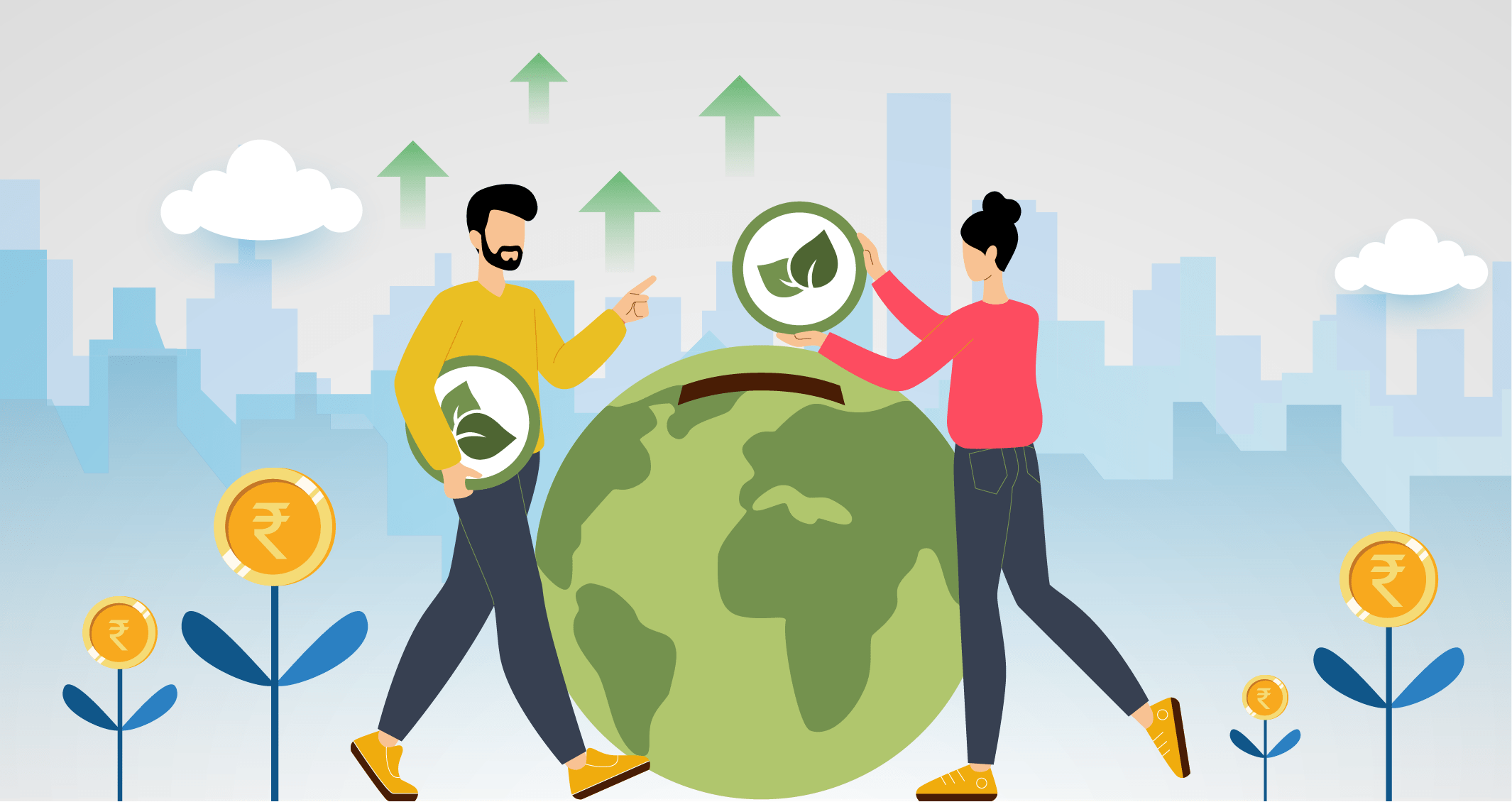Impact Investing & Its Benefits

“I’m so eco-conscious. On #TeamClothBags!”
“Pssh! That’s nothing; I use bamboo toothbrushes”
“That’s so 2016. I’m vegan, shop from organic brands, live minimalistic-”
Let’s stop right there. If you haven’t witnessed some antics on the internet already, it’s a well-known fact that some environmental enthusiasts know no bounds. To boost the planet’s recovery, they take on the herculean task of preaching the importance of preservation and sustainability. However, some of these efforts may be in vain or neglect other equally important aspects of sustainability and social betterment.
Still wondering how some of these efforts could be in vain? While shopping for groceries or at a market, you might come across people using tote bags. They claim it’s for plastic-free living, and it helps the environment. But there’s a fair chance it’s counterproductive. These tote bags require quite a few raw materials and consume more materials than a cheap polythene bag would. Though, this doesn’t mean that the latter is a better alternative.
The point is to create something eco-friendly that seamlessly replaces single-use plastics without increasing the usage of raw materials. And, there’s a way to do that!
Impact Investing: What is it?
As an investor, choose from various companies to invest your savings. It gives you the power to fund the operations of companies that serve ecological progress and social responsibility. At the same time, it allows you to continue reaping the short or long-term benefits of investing with reasonably high returns.
You might have come across sustainable investing before, and impact investing takes care of the bigger picture. According to the Impact Investors Council (IIC) in India,
“Impact Investments are investments made into impact enterprises with the intent to contribute measurable positive social or environmental impact, alongside a financial return. These impact enterprises generate substantial social impact by offering low cost, innovative solutions.”
Simply put, impact investing fills in the gaps of social and environmental disparity in traditional investing. The latter only caters to an investor’s financial goal, and the former allows investments to fund socio-environmental initiatives while earning reasonable returns. It provides ethically and environmentally charged companies with the necessary funds to continue contributing towards a positive goal.
After our recent bout with the global COVID-19 pandemic, the world has learned a crucial lesson – we can’t neglect environmental and social issues anymore. The glaring problems of climate change, human rights, gender and orientation inequality, and poverty are now addressed in boardroom meetings.
Today, businesses have shifted their focus from solely profitable mindsets to socially responsible visions. This change in their priorities emphasises the growth of social and ecological problems that require quick action.
The Progress of Impact Investing in India
Considering the rising economic disparity between different income and social groups in India, initiatives like impact investing are the need of the hour. Fortunately, there has been an exponential growth in impact investing initiatives in India over the last decade. As per data shared by IIC, over 600 impact enterprises have affected 500 million lives and counting in India. This activity generated over $9 billion in capital alone!
That said, most profits are earned from foreign donors and investors who invest through mediums like financial institutions or global foundations. This inflow of impact-focused capital contributed to creating a robust ecosystem for such initiatives. Though, it highlights the dependency of domestic private capital on conventional approaches toward investments.
India has been attracting the attention of such investment schemes since they can improve millions of lives. These continuous investments are fundamental to the planet and its inhabitants. The growing population, economy, and unaddressed social matters of third-world countries like India will increase the demand for such investment tactics.
Impact investments have accumulated a total of $5.2 billion via investments since 2010. However, 2015 was the turning point when investments crossed the $1 billion mark. The growth of these investments has come through doubling demand, which caused investments to soar up to $17.6 million in 2016.
In India, the following types of investors are actively engaging in impact investing for social and environmental betterment.
● Individual investors
● Family-run enterprises
● Private institutions
● Religious organisations
● Banks
● Insurance providers
The Benefits of Impact Investing
Impact investing is a small action that can make a world of difference. It allows investors to reap the returns of wise investments while simultaneously contributing to improving societal and environmental conditions.
But, impact investing doesn’t just satiate the eco-friendly person within investors. It comes with the following benefits!
1. Contribute to Social Change
The recent years have emphasised the importance of individual contributions to support movements and social causes. Amid this awakening, impact investing has attracted the attention of individual investors and large corporations. Impact investing boosts the funds of companies at the forefront of battling social inequalities, environmental concerns, etc.
2. Balance of Risk & Reward
Unlike other investment avenues, impact investing exposes its investors to fewer risks and lesser market volatility. Since they’re less reactive to market fluctuations, investor funds are less likely to experience the brunt of crashes. Moreover, impact investing is a lucrative way for investors to diversify their portfolios.
3. Eases Moral Dilemmas
The age-old ethical quandary of people between donating ₹1 to charity or leaving it for someone else to handle can now come to rest. Impact investing provides investors with the right opportunities to make social changes. Knowing the active progress of the company adds extra assurance to investors that their funds are used for the right purpose.
4. Earn High Yields
The increasing demand for impact investing has allowed it to gain momentum, along with its returns. With the attention of businesses shifting towards creating more environmentally-friendly goods and services, these conditions favour impact investing. Also, the growing popularity of sustainable businesses will boost the demand for impact investing.
Looking for more ways to diversify your portfolio? Choose from fixed deposits or mutual funds based on your risk appetite on Bajaj MARKETS today!
